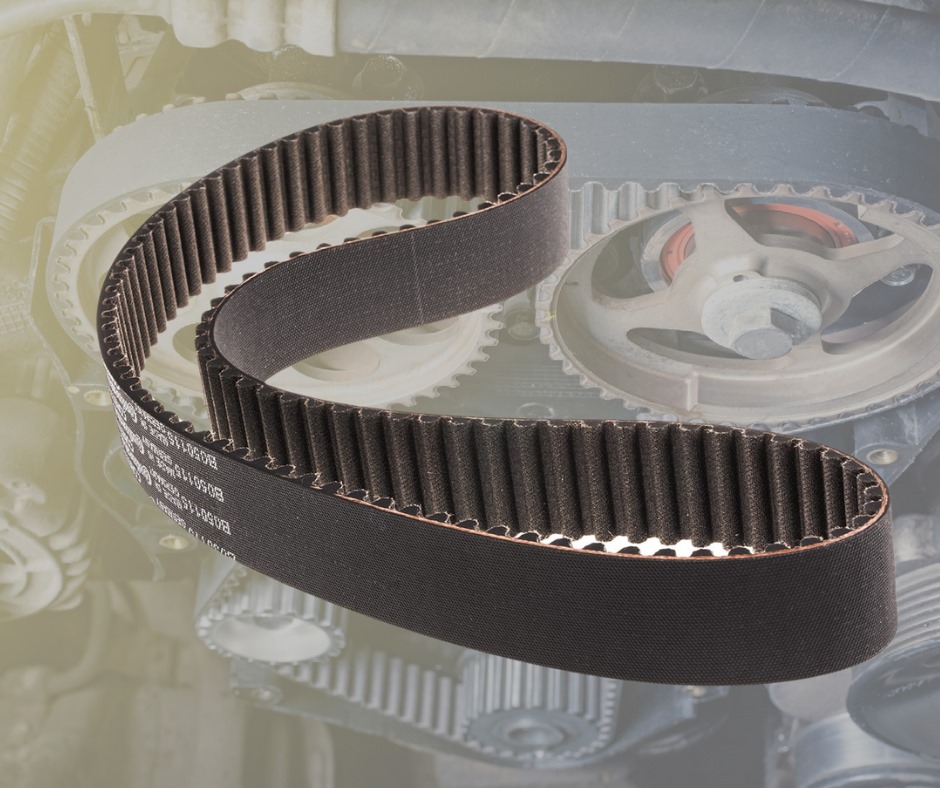Common Symptoms of a Failing Timing Belt

Discover the critical signs of timing belt failure and save your vehicle from costly repairs.
Role and Importance of Your Car's Timing Belt
Your timing belt plays a crucial role in the proper functioning of your vehicle's engine. It is responsible for synchronizing the rotation of the crankshaft and camshaft, ensuring that the engine's valves open and close at the right time. This synchronization is essential for the engine to run smoothly and efficiently. Without a functioning timing belt, your engine may experience severe damage.
The timing belt is a rubber belt with teeth that connects the crankshaft and camshaft. It is designed to withstand high temperatures and tension, but over time, it can wear out and become prone to failure. That's why it's important to be aware of the signs of timing belt failure to prevent unexpected breakdowns and costly repairs.
Common Symptoms of a Failing Timing Belt
There are several common symptoms that indicate a failing timing belt. One of the most noticeable signs is a high-pitched squealing noise coming from the engine. This noise is usually caused by a loose or worn-out timing belt that is slipping on the pulleys.
Another symptom is difficulty starting the engine. If your timing belt is worn or damaged, it may prevent the engine from starting or cause it to start but then quickly stall.
You may also experience engine misfires or a noticeable decrease in power and acceleration. This can be attributed to the incorrect timing of the engine's valves, which is controlled by the timing belt.
In some cases, a failing timing belt can cause the engine to overheat. This is because the timing belt drives the water pump, which circulates coolant throughout the engine. If the timing belt fails, the water pump may stop working, leading to overheating and potential engine damage.
If you notice any of these symptoms, it's important to have your timing belt inspected and replaced if necessary to avoid further damage to your engine.
How a Faulty Timing Belt Affects Your Vehicle's Performance
A faulty timing belt can have a significant impact on your vehicle's performance. As mentioned earlier, the timing belt is responsible for synchronizing the rotation of the crankshaft and camshaft. If the timing belt is worn or damaged, it can cause the engine's valves to open and close at the wrong time, leading to a loss of power and decreased fuel efficiency.
In some cases, a failing timing belt can even cause the engine to completely fail. This is because if the timing belt breaks, the pistons and valves can collide, resulting in severe damage to the engine. This type of damage often requires expensive repairs or even engine replacement.
Additionally, a faulty timing belt can also affect the overall performance of other engine components. For example, if the timing belt drives the water pump and it fails, it can lead to coolant leaks and overheating, which can further damage the engine.
To ensure optimal performance and prevent costly repairs, it's crucial to address any issues with your timing belt promptly.
Preventive Measures and Regular Maintenance Tips
To prolong the life of your timing belt and prevent failure, it's important to follow some preventive measures and regular maintenance tips.
Firstly, it's recommended to check your timing belt's condition regularly, especially if your vehicle has high mileage or is approaching the manufacturer's recommended replacement interval. Look for signs of wear, cracks, or fraying. If you notice any damage, it's best to replace the timing belt before it fails.
Secondly, it's crucial to follow your vehicle manufacturer's recommended timing belt replacement interval. This interval can vary depending on the make and model of your vehicle, so refer to your owner's manual or consult a professional mechanic for guidance.
Lastly, it's important to address any other engine issues promptly, as they can put additional strain on the timing belt. Regularly check and maintain the tension of the timing belt, as a loose or too tight belt can cause premature failure.
By following these preventive measures and regular maintenance tips, you can prolong the life of your timing belt and reduce the risk of timing belt failure.
When to Consult a Professional: Timing Belt Inspection and Replacement
While it's possible to visually inspect your timing belt for signs of wear, it's recommended to consult a professional mechanic for a thorough inspection. They have the expertise and tools to accurately assess the condition of your timing belt and determine if it needs to be replaced.
In general, timing belts should be replaced according to the manufacturer's recommended interval or mileage, whichever comes first. However, if you notice any of the common symptoms mentioned earlier or have concerns about the condition of your timing belt, it's best to have it inspected by a professional as soon as possible.
Replacing a timing belt is a complex task that requires specialized knowledge and skills. It involves removing various engine components and properly aligning the new timing belt to ensure precise timing. Therefore, it's recommended to leave timing belt replacement to the professionals to ensure the job is done correctly and to avoid any potential damage to the engine.
By consulting a professional for timing belt inspection and replacement, you can have peace of mind knowing that your vehicle is in good hands and that you're taking the necessary steps to prevent costly repairs and engine damage.
Drop us a message from our facebook page or Chat us using the widget on the right to order a timing belt for your car.

 Loading..
Loading..